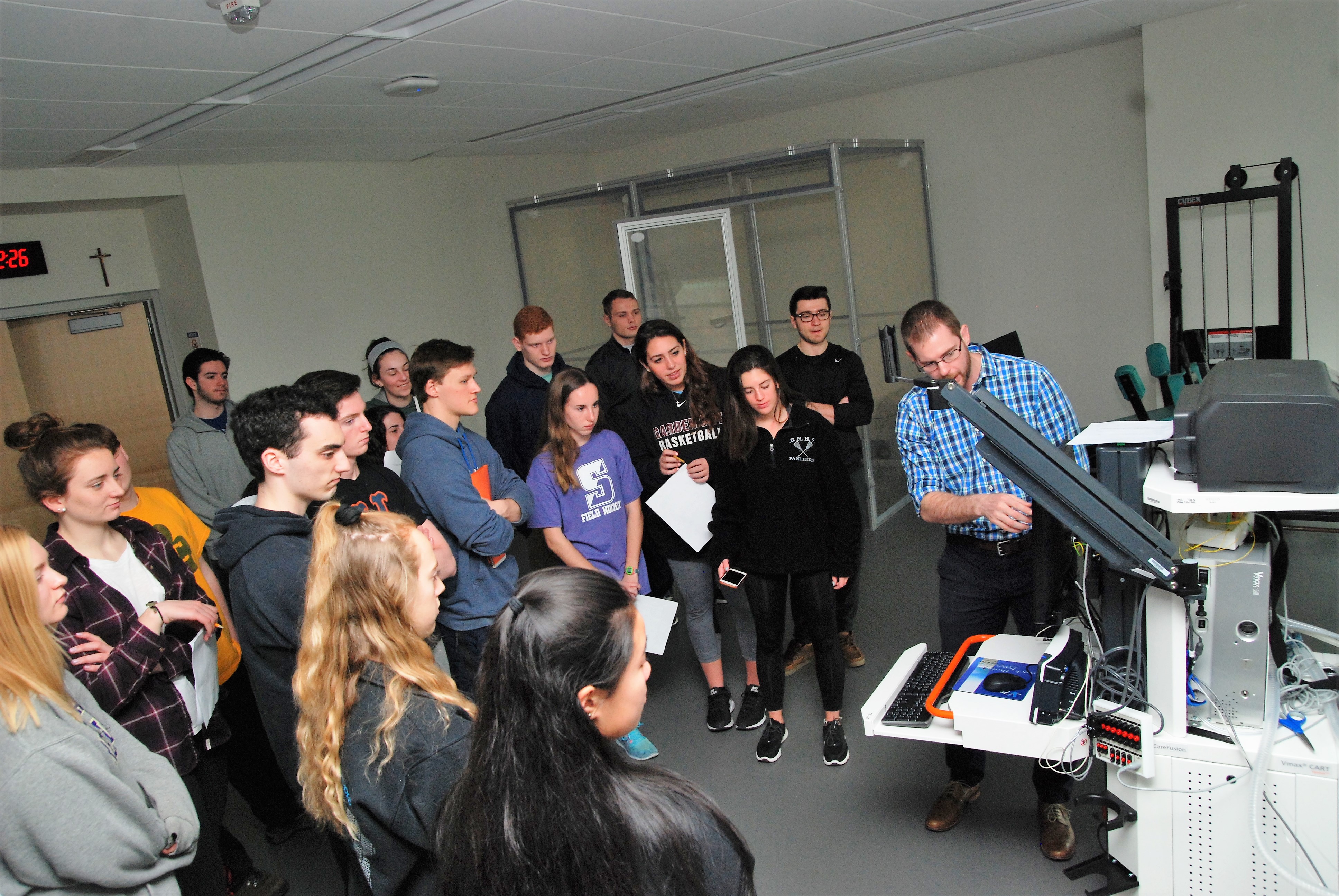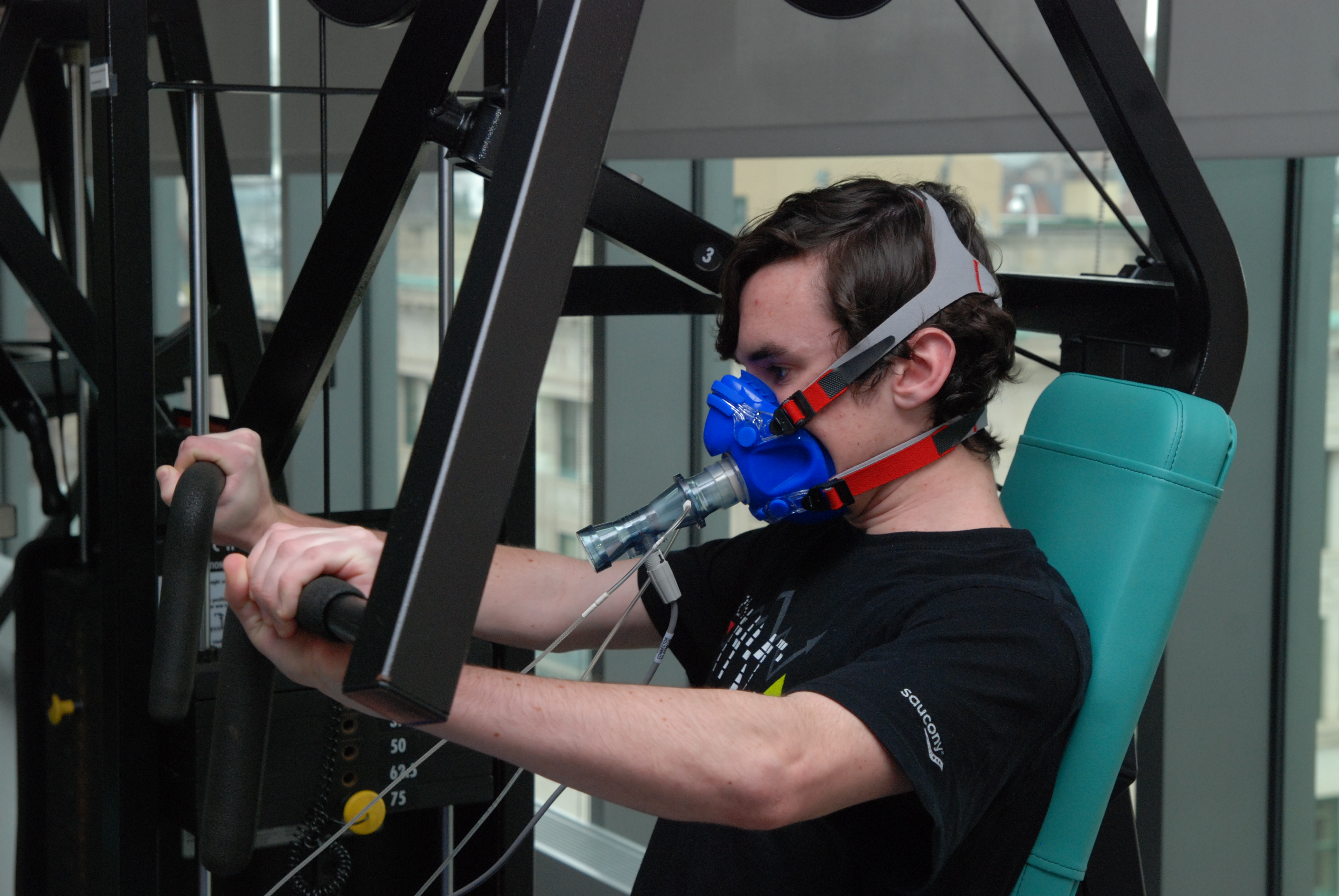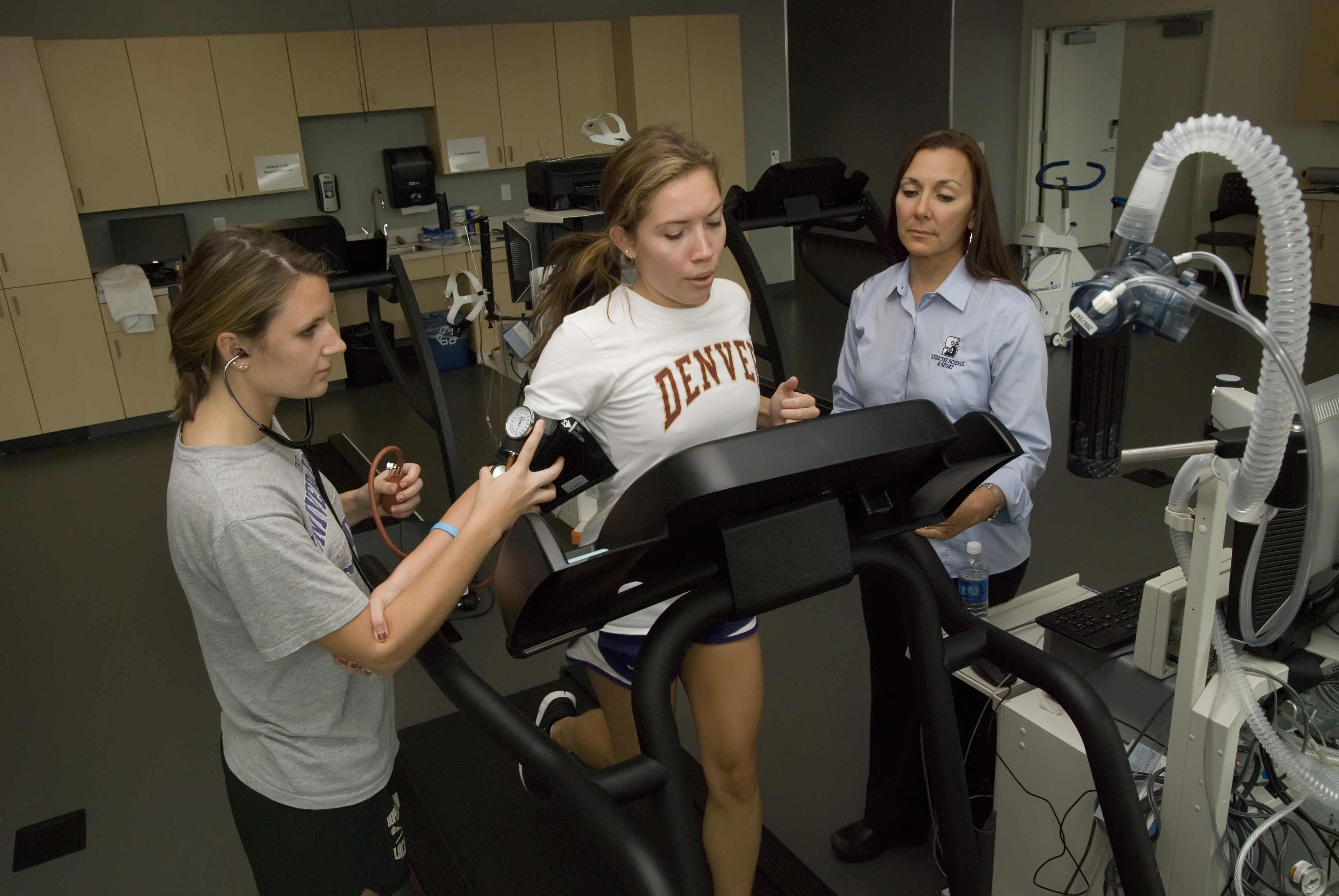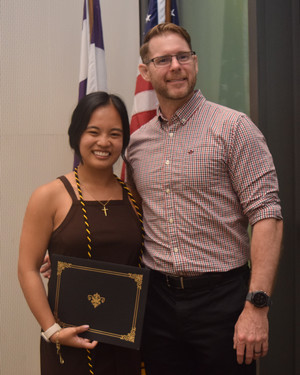Kinesiology Major
Overview
Kinesiology is part of the field of sports medicine, which also includes clinical areas of study. The scientific aspects of sports medicine include exercise physiology, nutrition and biochemistry of exercise, and biomechanics.
Testing of lactic acid metabolism, analysis of muscle fatigue, research on muscle hypertrophy and bone density, measurement of body composition, and benefits of exercise in cardiovascular disease, diabetes, osteoporosis and weight control are a few of the many contributions made by exercise scientists to sports medicine.
Curriculum

Before taking any KNES course numbered above KNES 229, students must have completed all major and cognate courses with a minimum grade of “C.” Students must also possess a minimum grade point average of 2.50 within the major. Subsequently, in order to progress in KNES courses, (1.) a minimum grade of “C” must be earned in each major and cognate course and (2.) a minimum grade point average of 2.50 is required within the major.
Accreditation
The kinesiology major is accredited through the Committee on Accreditation for the Exercise Sciences (CoAES) under the Commission on Accreditation of Allied Health Education Programs (CAAHEP).

Career Paths

Few academic program majors offer such diverse opportunities after graduation as Kinesiology. The academically rigorous curriculum prepares graduates with knowledge and experience for employment opportunities in a variety of settings. In the applied health area, careers in corporate and community/ hospital-based wellness programs, cardiopulmonary rehabilitation, and research centers investigating the benefits of exercise in chronic disease states are possibilities. Strength and conditioning specialists for sports teams are also career options.
Kinesiology is an excellent option for students interested in applying to graduate health-profession programs such as physical therapy, physician assistant, and clinical exercise physiology. Additional required course work to meet entry requirements can be chosen as electives. In this regard, students should make their career intentions known early in their program of study.
Opportunities for graduate study are available in academic units of medicine, biology, physiology, and kinesiology. Although not required, completion of the program provides students with the ability to take different certification exams offered by several professional organizations including the American College of Sports Medicine, and the National Strength and Conditioning Association.
Student Outcomes
Graduates of the kinesiology major have a high success rate with finding employment or being accepted to Doctor of Physical Therapy programs. For the classes of 2023 and 2024, the success rate was 100 percent.







